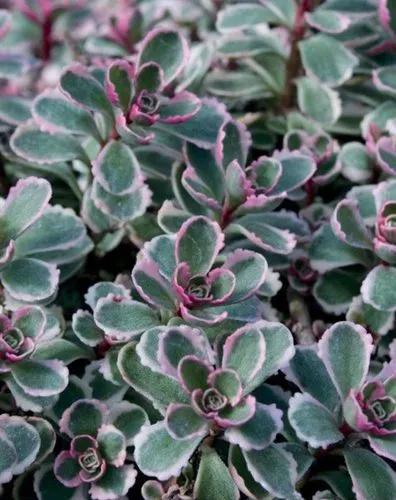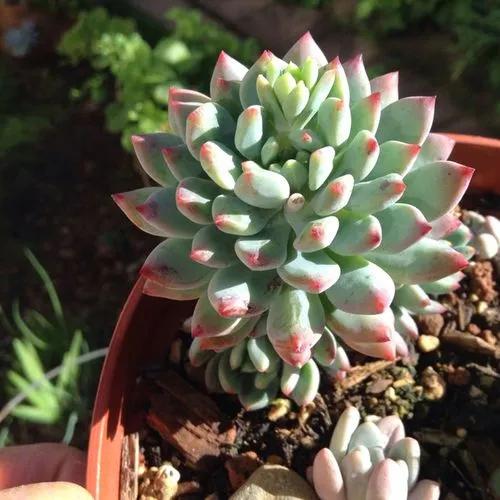Echeveria 'Violet Queen' is a compact succulent with very neat symmetrical shape and green-grey leaves with a pink blush at the edge in cooler weather. It is easy to care for and very beginner friendly.
Echeveria Violet Queen Care
Echeveria 'Violet Queen'



Echeveria 'Violet Queen' (Violet Queen Hens and Chicks) is a fast growing and hardy rosette-forming gray-leafed succulent which freely offsets to form a dense small mound or groundcover to 4 to 5 inches tall with each rosette spreading to 6 to 8 inches wide. The leaves are long and narrow and curve up slightly towards the tips to form an open lotus blossom shape. The leaves, especially the tips, take on a rose pink coloration in late fall and winter that is enhanced by cold evenings and even light frosts. This hybrid was created by legendary Santa Barbara Horticulturalist Edward (E.O.) Orpet, for whom our hillside Orpet Park was named. It is thought to be an Echeveria elegans hybrid and is sometimes grown as E. subsessilis.
How to Care for the Plant

Water

Like most succulents, they need infrequent water to prevent rot. Water deeply enough for water to run out the drainage hole, then wait for the soil to fully dry before watering again.

Fertilizer

Regular fertilizing is not a requirement for growing Echeveria as they are accustomed to growing in nutrient-poor soil, which makes them susceptible to fertilizer burn if over-fertilized. Occasional fertilizing during the spring and summer months can help Echeverias during their active growing period but should be executed with caution. Use a cactus or succulent fertilizer, or a liquid fertilizer diluted two to four times more than normal.

Sunlight

It does well in full to partial sun. Plant in an area of your garden that gets 6 hours of sunlight a day.

Soil

Use a well-draining cactus and succulent soil with 50% to 70% mineral grit such as coarse sand, pumice, or perlite.

Temperature

Violet Queen' is not cold hardy, so if you live in a zone that gets colder than 20° F (-6.7° C), it's best to plant this succulent in a container that can be brought indoors.

Container

If growing inside, choose any type of container with enough drainage holes.

Popularity

57 people already have this plant 32 people have added this plant to their wishlists
Discover more plants with the list below
Popular articles






